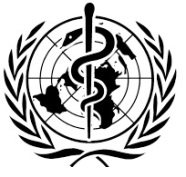 The World Health Organization states that:
The World Health Organization states that:
“Sanitation generally refers to the provision of facilities and services for the safe disposal of human urine and feces. Inadequate sanitation is a major cause of disease world-wide and improving sanitation is known to have a significant beneficial impact on health both in households and across communities. The word ‘sanitation’ also refers to the maintenance of hygienic conditions, through services such as garbage collection and wastewater disposal’
Sanitation and Hygiene as taught in our schools generally means following healthy practices in every aspect of life such as washing hands before eating and cleaning the house and environment around us. This is one aspect of Sanitation which addresses what is cleanliness. The other aspect of sanitation is how to achieve cleanliness. It is the second aspect which is more complex and this is what which requires attention. It covers:
- Safe collection, storage, treatment and proper disposal of waste including human excreta
- Management, re-use and recycling of wet and dry wastes
- Drainage and disposal/re-use/recycling of wastewater from households
- collection and management of industrial waste products; and
- Management of hazardous wastes (including hospital wastes, and chemical/ radioactive and other dangerous substances).
- Effective sewage system
Open Defecation
As per  WHO – UNICEF report, India tops in open defecation. This includes both urban and rural population contributing to it. Open Defecation results in excreta to get into the food chain through various mediums. This results in diseases such as diarrhea which results in large number of children deaths every year. Open defecation is also not safe for pregnant women due to unhygienic conditions.
WHO – UNICEF report, India tops in open defecation. This includes both urban and rural population contributing to it. Open Defecation results in excreta to get into the food chain through various mediums. This results in diseases such as diarrhea which results in large number of children deaths every year. Open defecation is also not safe for pregnant women due to unhygienic conditions.
 The solution seems to be simple i.e. building public toilets. Though public convenience have been constructed and operated in some cities, the cleanliness of the same is under debate. These places are not clean, smells horrible and there are doubts whether the waste is managed appropriately or routed directly to sewages. Disposal by appropriate means is the key to address this problem. Houses and big societies should take care that waste is appropriately managed and ensure that it does not directly goes into sewage. Individual houses should have safety tanks and societies should have STP (Sewage Treatment Plants) to address the issue.
The solution seems to be simple i.e. building public toilets. Though public convenience have been constructed and operated in some cities, the cleanliness of the same is under debate. These places are not clean, smells horrible and there are doubts whether the waste is managed appropriately or routed directly to sewages. Disposal by appropriate means is the key to address this problem. Houses and big societies should take care that waste is appropriately managed and ensure that it does not directly goes into sewage. Individual houses should have safety tanks and societies should have STP (Sewage Treatment Plants) to address the issue.
In rural areas still a major population is involved in open defecations in fields and forests. In many scenarios people does not have money to construct toilets. To begin with, we can teach people the importance of sanitation and suggest some alternatives to these people to dispose the waste appropriately so that they do not enter the food chain. Other measures could be giving interest free loans to Village Panchayats to construct toilets, prompt big corporations to take CSR initiative by adopting a village and building the toilets.
Household Waste Management
Though some of the cities and waste management companies have come up with the idea of waste segregation into wet and dry waste and appropriately treating it, the practice has not really gained the momentum except in very few localities. The only place we can see separate dustbins for recyclable and non-recyclable waste is airports. The waste management companies to be economically viable need some minimum amount of waste which can be recycled. Because of improper handling of waste most of the recyclable and non-recyclable waste goes into the dumping ground which could have been disposed appropriately.
The plastic bags are one of the major sources of garbage. Being non-biodegradable they are not decomposed and release harmful chemicals in nature. We need to educate people on how to use it effectively. For instance, one should carry recyclable bags or use jute bags or bags made of clothes for shopping of groceries and vegetable. In supermarkets for weighing vegetables everyone takes an individual plastic bag for every item. Instead they should use the same bag to put all the items after weighing. For single items one should not ask for carry bags. By adopting such small rules in the life we can considerably reduce the waste.
In Households one of the other major category of the waste is wet waste. The wet waste such as vegetables and fruit skins can be converted into manure which can be used in plants and gardens. There are various methods available to do. The people who have gardens and have plants can do the same instead of disposing it in garbage
Industrial & Hospital Waste Management
Ind ustrial waste management is a serious concern as untreated water is discharged to rivers. Inspite of the strict environment rules of discharging only the treated water out of the factories, still the rules are flouted. Millions of Rupees have been spent in cleaning of Ganga and Yamuna but the situation still remains the same. Since the river acts as source of drinking water and bathing this results in skin diseases and other ailments
ustrial waste management is a serious concern as untreated water is discharged to rivers. Inspite of the strict environment rules of discharging only the treated water out of the factories, still the rules are flouted. Millions of Rupees have been spent in cleaning of Ganga and Yamuna but the situation still remains the same. Since the river acts as source of drinking water and bathing this results in skin diseases and other ailments
The hospital waste is also not properly disposed off and mostly dropped in the open dustbins. The open dumping yard which acts as breeding grounds for animals further aggravates the situation since these animals carry the infections from used syringes and bandages. Even in certain slums children play near these garbage points making them susceptible to infections and harmful diseases.
Improper Sewage System
Imp roper sewage system is another serious concern. The water gets accumulated in the open areas due to ineffective sewage system. This accumulated water acts as a breeding ground for mosquitoes thus spreading Malaria and Dengue. The situation is so worse that dengue and malaria has become a recurrent epidemic after the rainy season ends. Hundreds of people and children gets affected and die since they are not able to get the medical care on time.
roper sewage system is another serious concern. The water gets accumulated in the open areas due to ineffective sewage system. This accumulated water acts as a breeding ground for mosquitoes thus spreading Malaria and Dengue. The situation is so worse that dengue and malaria has become a recurrent epidemic after the rainy season ends. Hundreds of people and children gets affected and die since they are not able to get the medical care on time.
Lack of Moral Responsibility
Finally it should be everyone’s moral responsibility to not spread the garbage. Some of the common visuals we see every day are people throwing garbage on the streets; car drivers/passengers throwing packets, bottles from the moving cars; people spitting on the roads etc. We are the same people who when go abroad maintain the cleanliness and when we come back to India spreads the garbage. Inspite of having a vast culture, flora and fauna, India is remembered for garbage and slums and is showcased in all the movies.
Recently Our Prime Minister started a Swachh Bharat campaign on 2nd October on the eve of Gandhi Jayanti by nominating 9 persons to take up the challenge of cleaning their locality who in turn will nominate 9 other people creating a chain. This is an initiative for people to recognize the need for cleanliness and sanitation. We hope this campaign goes a long way creating a swachh India
This blog is part of #SwachhIndia campaign from Dettol & NDTV (http://swachhindia.ndtv.com/) and Organized by Indiblogger.
*The source of the pictures are clipart images from Microsoft Word






